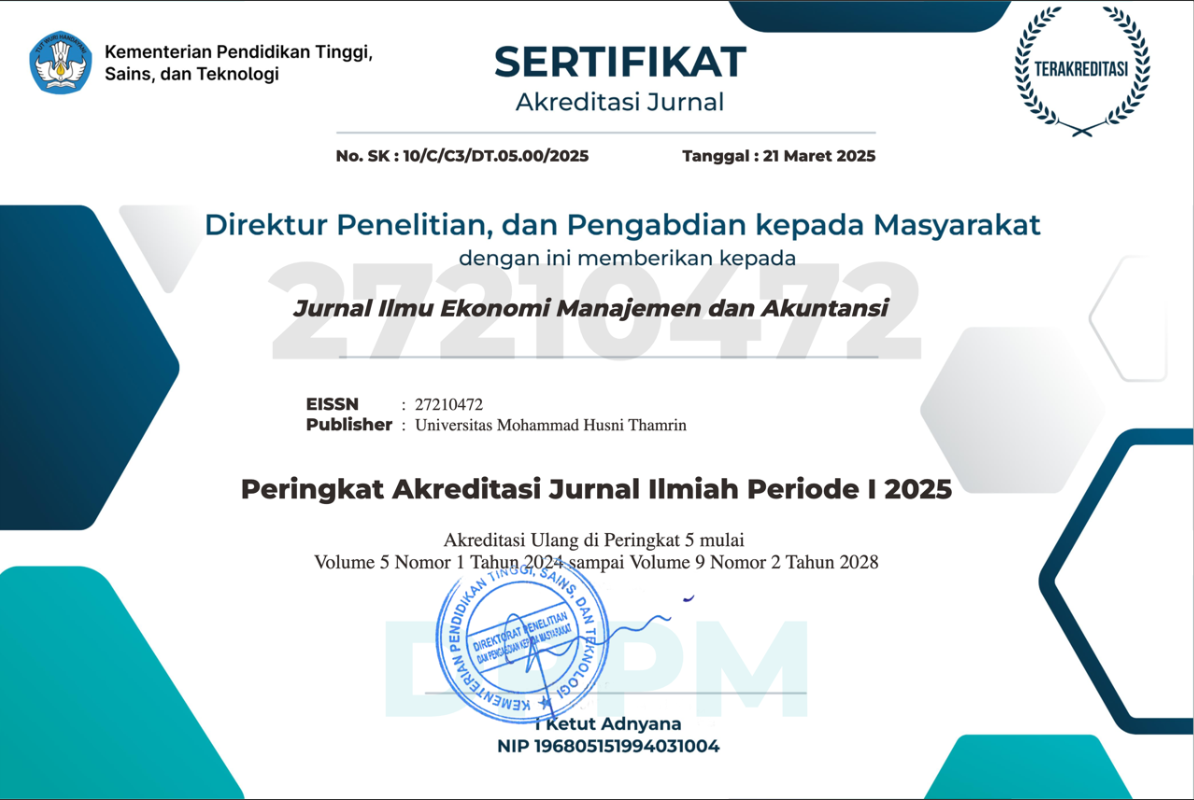Analysis of the Influence of Digital Marketing Strategies on Customer Loyalty in the Post-Pandemic Era 2022-2024
DOI:
https://doi.org/10.37012/ileka.v6i2.2853Abstract
Covid-19 created a distinct pattern in Indonesian product marketing, namely shopping through online stores. This pattern then changed consumer habits in selecting, having interest in, and purchasing goods, as well as for business actors in promoting their products. The purposed of this study was to identify and analyze the extent to which digital marketing strategies affect customer loyalty in the post-pandemic Covid-19 era during the period of 2022 to 2024. The method used in this research was associative quantitative with a multiple linear regression approach and one-way analysis of variance (ANOVA). This approach aimed to determine both the simultaneous and partial effects of each variable, with a sample of 200 respondents. The resulted of this study, based on multiple linear regression and ANOVA analysis, showed that the three independent variables simultaneously had a significant effect on customer loyalty, with an R Square value of 0.464, meaning that 46.4% of the variation in customer loyalty can be explained by this model. The ANOVA test produced a significance value of 0.000, confirming that the overall regression model is significant. Partially, the three independent variables—personalization, social media engagement, and customer experience—were found to have a positive and significant effect on the dependent variable, customer loyalty. The conclusion drawn from this study is that digital marketing strategies based on personalization, social media interaction, and digital experience are proven to have a significant effect on customer loyalty.
Downloads
Published
Issue
Section
Citation Check
License
Copyright (c) 2025 Mona Karina, Murniwati, Febrianto

This work is licensed under a Creative Commons Attribution 4.0 International License.
Jurnal Ilmu Ekonomi Manajemen dan Akuntansi (ILEKA) Universitas Mohammad Husni Thamrin allows readers to read, download, copy, distribute, print, search, or link to the full texts of its articles and allow readers to use them for any other lawful purpose. The journal allows the author(s) to hold the copyright without restrictions. Finally, the journal allows the author(s) to retain publishing rights without restrictions Authors are allowed to archive their submitted article in an open access repository Authors are allowed to archive the final published article in an open access repository with an acknowledgment of its initial publication in this journal.

Jurnal Ilmu Ekonomi Manajemen Akuntansi (ILEKA) Mohammad Husni Thamrin is licensed under a Creative Commons Attribution 4.0 International License.











